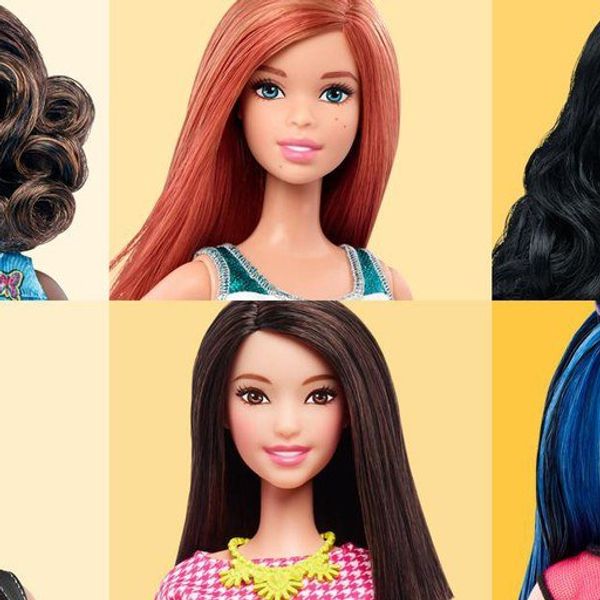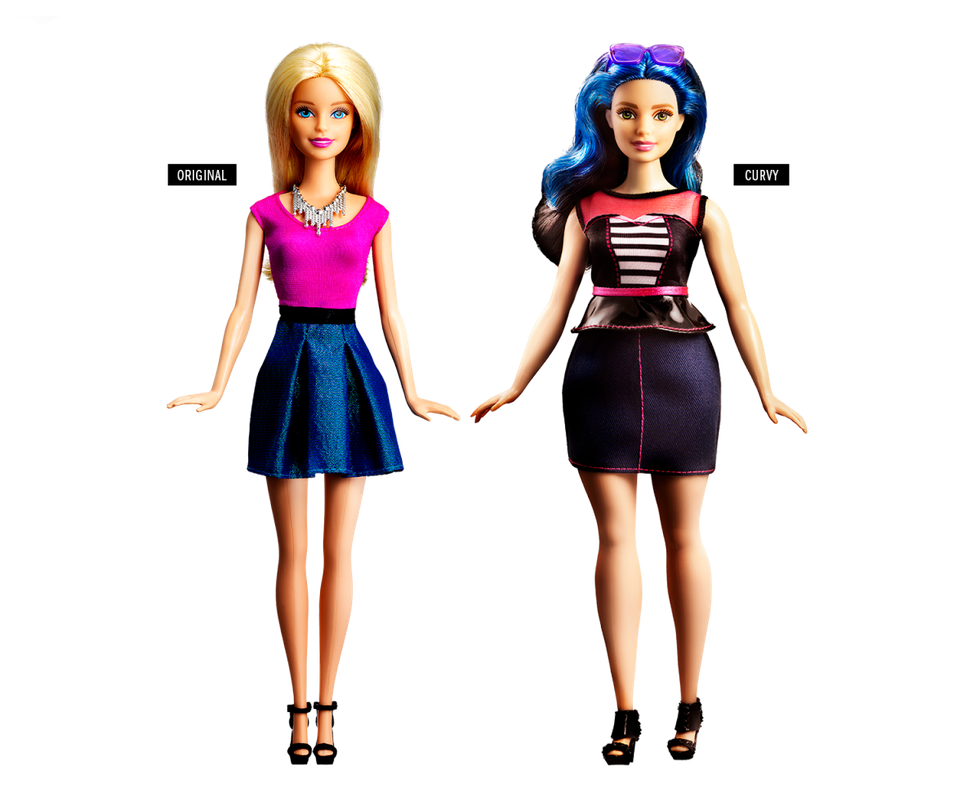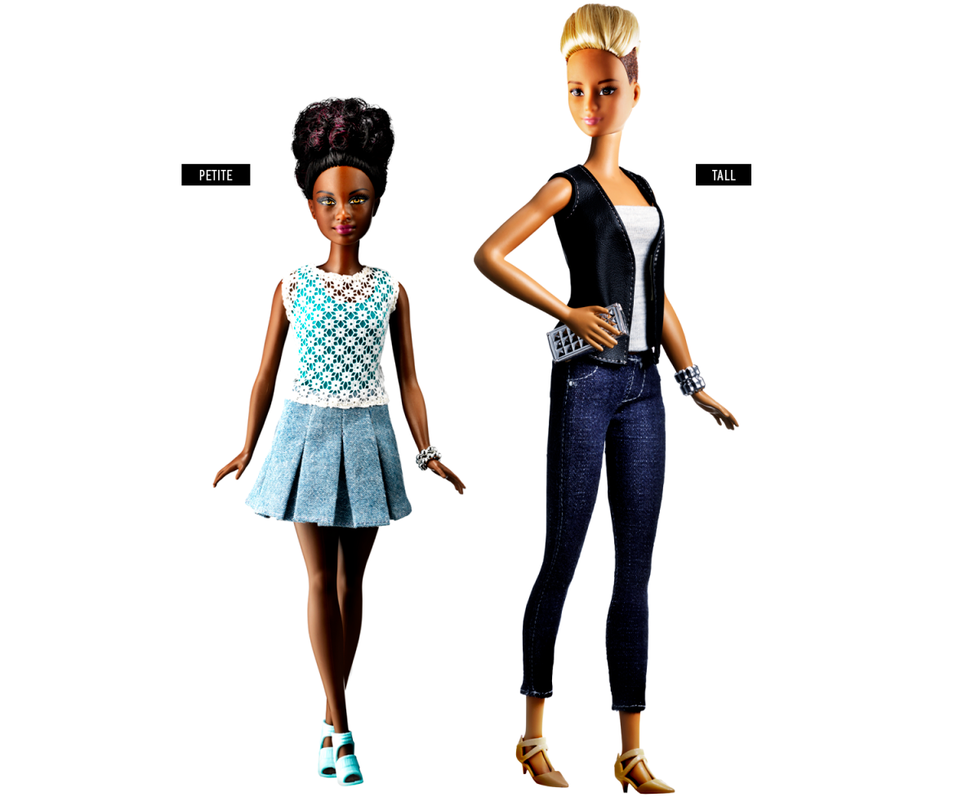Last week Mattel announced the launch of a new type of Barbie. Actually, they’re launching several new types of Barbies.
Barbie will now come in Tall, Petite and Curvy, with variations in skin tone and hair color.
The change is much needed and an encouraging step for those who have criticized Barbie in the past, including myself.
The original Barbie (which will continue to be sold alongside the new ones) has drawn criticism and has also been the subject of numerous studies that focus on how the doll’s ridiculously impossible proportions affect young girls’ body image. It's true that over the years Barbie has held a variety of professions including astronaut, presidential candidate, veterinarian, doctor, etc., and this could be considered a small win for feminism. After all, it's showing girls that any job they want is within reach, and that they don't have to be pigeon-holed into traditionally feminine occupations. However, with the number of diagnosed eating disorders among adolescents, teens, and young adults climbing, this win falls flat if the girls don't feel confident enough in their own skin to feel confident in their skill sets and professions.
Studies have shown that when young girls play with Barbies, they experience mild to extreme body image issues and dissatisfaction. Girls ages 6-10 who play with Barbies were more likely to restrict their food intake, already beginning to realize that society prefers women to look a certain way. They begin to internalize this idea that to be beautiful, you have to be white, skinny and blonde. And that's our fault. Beauty comes in a variety of shapes and colors, but we market it as one ideal. It's not healthy and it's not fair.
It's horrifying to realize that we as a society have been teaching whole generations of girls (and boys) to hate their bodies and to worship the thin blonde Barbie, whose proportions are so outrageous, they would be anatomically impossible on a real human being. By glorifying the Barbie Body, we're teaching kids to idolize something that's more than just impossible, it's dangerous! There are over 30 million people suffering from an eating disorder in the United States, and with each group of girls playing with a Barbie, there is the possibility of adding to that number.
This Barbie makeover is coming a little late, but it is still appreciated and will hopefully make a difference in the lives of young girls who are already starting to weaponize the word "fat," pull at the rolls on their stomachs in disgust, and push food around on their plate instead of eating it in the hopes they'll become thin and beautiful just like Barbie.
Whether or not this change was made simply to combat declining sales at Mattel is not my concern. What matters to me is representation, and the fact that millions of little girls will now see themselves more accurately represented in the toys they choose to play with, and that they will in turn come to love the bodies they are in instead of literally wasting away trying to mirror the impossible figure of the original Barbie.























